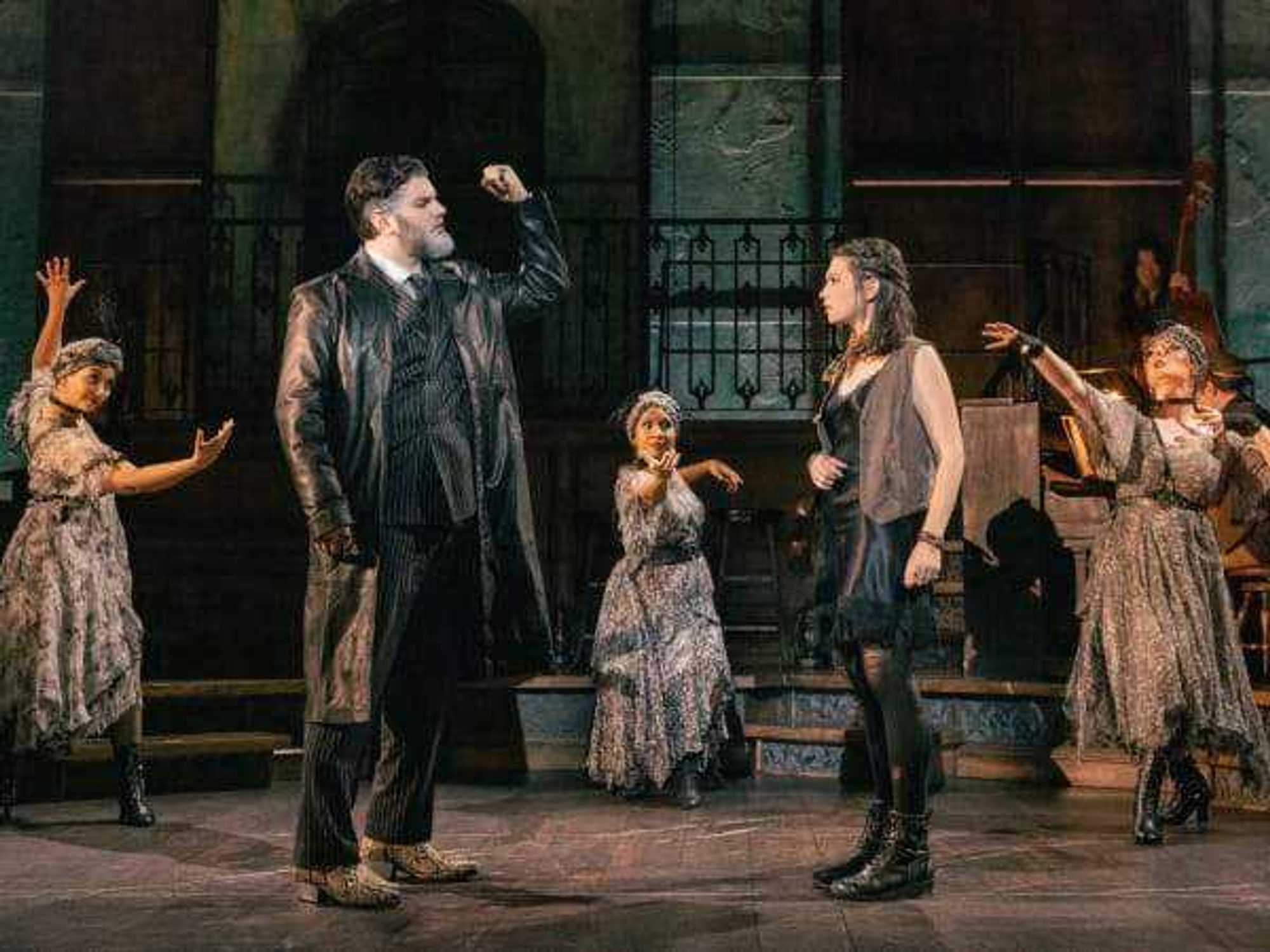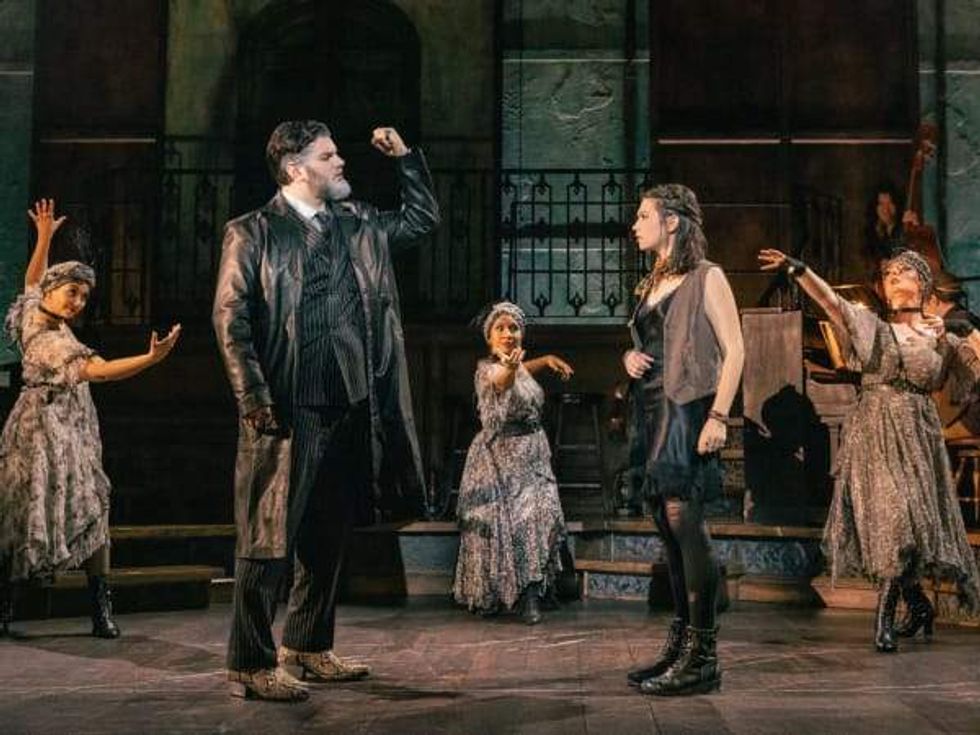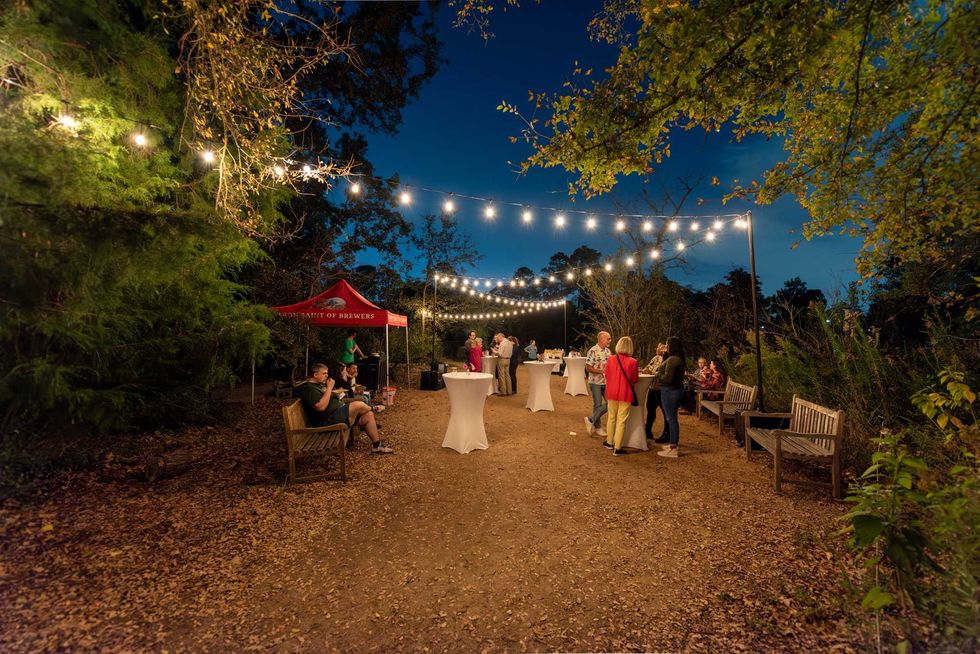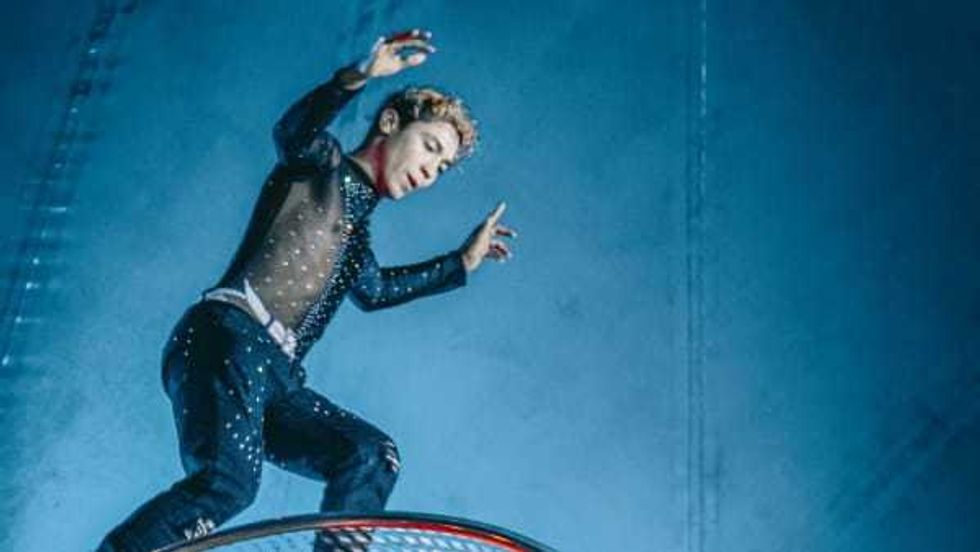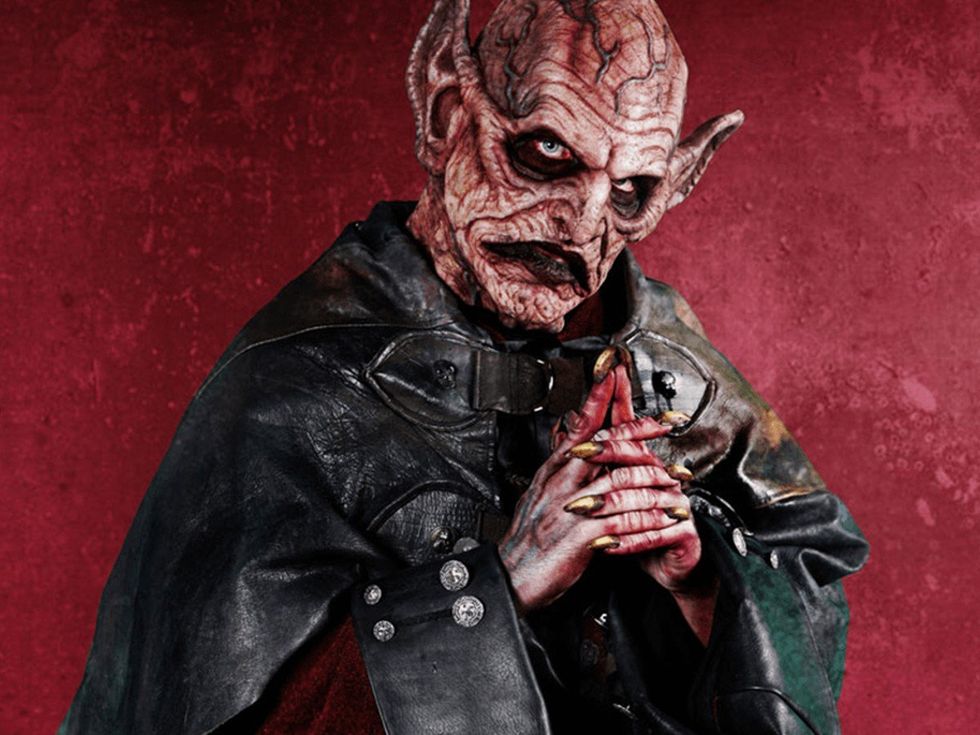Two chances to see it
What's true? The Reconstruction of Asa Carter examines double lives and secretidentities

 Asa Carter — in Clinton, Tenn., 1957 — was a segregationist politician andKlansman...Photo by Robert W. Kelley/Time & Life Pictures/Getty Images
Asa Carter — in Clinton, Tenn., 1957 — was a segregationist politician andKlansman...Photo by Robert W. Kelley/Time & Life Pictures/Getty Images ...whose alter ego, Forrest Carter, was responsible for the revival of NativeAmerican culture in the 1970s.
...whose alter ego, Forrest Carter, was responsible for the revival of NativeAmerican culture in the 1970s. His double life was exposed...
His double life was exposed... ...and Douglas Newman, Laura Browder and Marco Ricci decided to capture hisstory on film.
...and Douglas Newman, Laura Browder and Marco Ricci decided to capture hisstory on film. Douglas Newman, producer
Douglas Newman, producer
We all remember the day we found out our parents weren't superheroes, perfect, omnipotent. It was the day we lost our innocence in favor of maturity. It's part of growing up.
Learning "the truth" is something that's often associated with painful experiences. It means learning that our perceptions are not always accurate, consciously or unconsciously.
But what if this incongruity is done on purpose? What happens when we are deceived?
The movie The Reconstruction of Asa Carter — in tracing the transformation of a Klansman/politician and segregationist speech writer to a fictional Cherokee persona responsible for the revival of Native American culture in the 1970s — explores what happens when people living double lives, that are so publicly extreme, are exposed.
The film is much more than plain biography. It considers the subject of ethnic impersonations and their influence on the American zeitgeist and questions issues of ethnic identity.
The journey of such a film began with producer Douglas Newman's senior thesis (Newman is CultureMap contributor who has produced a number of video series for the site, including Profiles In Innovation). Newman partnered with executive producer Laura Browder and director Marco Ricci on The Reconstruction of Asa Carter.
CultureMap spoke with Newman to learn about the film, Asa Carter and the quest for truth.
CultureMap: The subject of dual lives is fascinating and, in a way, very applicable to our times. People appear to be one way online, another in real life. Why do you think Asa Carter is timely? Why focus on it now?
Douglas Newman: The story of Asa Carter was well known at different times in history. He was a household name in the mid '70s, in the '90s when his novel, The Education of Little Tree (the book was published as a new paperback edition) resurfaced and when Oprah brought to the limelight James Frey's A Million Little Pieces. When the topic of fake memoirs is fresh, his character reappears.
People's memories are so fleeting and personas like Carter come in and out of our consciousness.
Like with A Million little Pieces, fans did not want it to be true. How could someone like the real Frey or Carter craft something so meaningful to so many people?
Even those close to Forrest Carter, the Native American version of Asa Carter, knew this autobiography wasn't true, but they didn't let themselves understand and synthesize the "hero's" extreme past.
For some watching my documentary for the first time, those that knew Forrest, their reaction was visceral. They are stunned to learn his story wasn't true and had no idea of the extent of the cover up.
They didn't want to know.
CM: People would rather live in ignorant bliss than know the truth.
DN: If you read a book as a young adult that was meaningful to you and then heard the whole premise was false, your initial instinct would be to protect yourself. I think Oprah did the same thing (with Frey). She wanted to believe it was the truth and did the best to justify it.
CM: Why the interest in Carter?
DN: My interest in the subject started back in 1993 as I didn't grow up with any sort of personal association with the story of Carter. I did a senior thesis film soon after I discovered his story. For some of the material, I interviewed Laura Browder who was an expert in the fake ethnic phenomenon.
I knew that someday I would revisit the subject and do his story justice. Twelve years later, when I decided to give it a second round, I called on her and she agreed to collaborate. We then hooked up with Marco Ricci, a director friend of mine in New York and off we went.
CM: Why go back to it?
DN: The student film was super low budget, crappy quality, something I would not show publicly. I have grown much since then. I haven't watched it since the mid '90s and didn't consider watching it while working on The Reconstruction of Asa Carter.
CM: Interesting. Why not? Was that a conscious decision? Not even for the sake of nostalgia?
DN: Not even nostalgia. I didn't have much money or resources to do the original film. Actually, this was my first attempt at a film project as my curriculum was focused on American studies and psychology.
I knew that one day, I would go back to it.
CM: Do you feel fulfilled? Is your journey with Asa Carter complete?
DN: Very. Very fulfilled.
CM: Were there any logistical challenges? How did his family react? Were they cooperative?
DN: We had no cooperation from the family. We never received a yes, nor a no. They were just silent until we showed the film. Some loved it. His son saw it, some of his nieces and nephews saw it and several of his grandchildren saw it. The experience was gratifying.
When we did a screening in Asa's hometown, the theater was completely packed. His son ducked out before we had a chance to talk and I understood. It was hard for him to see.
Since then, I have been in touch with his niece often; her father was Asa's right-hand man. She feels like she's gotten to know herself by getting to know her family. It's not all pretty, but it's been special to learn about her father through our conversations.
Because we didn't have any direct collaboration with the families, the production team decided not to focus on Asa's personal space.
The other difficult part is that there's no footage of Forrest Carter. His transition wasn't cut and dry, it was gradual. He initially just used it as a pen name. It was very much a fictional character, a vernacular of a Native American persona.
CM: Can you speculate why he would do such a thing?
DN: Our hope with the film is to never give an answer. It's just too complex.
I think part of the reason he did it was purely practical. He couldn't just publish anything under his own name. He was too prominent as a segregationist politician and rabble rouser to be able to publish under his own name. Why he took it so far? If you asked each of us involved in the film, you would get a different answer.
I do think he sympathized with Native American culture. He saw parallels between the dying Southern way of life and the dying Native American culture. He saw the Native American, in a way, as a stand-in for the white southerner.
With segregation being over and the new government imposing its iron fist against the people of the South, it was essentially the end of an era. He identified with the confederate soldiers, who after the Civil War, rather than live under Reconstruction, packed up and moved to Texas to start over.
You can get a fresh start in Texas and that's the exact premise of his first book, The Rebel Outlaw: Josey Wales, which Clint Eastwood made into the 1976 film, The Outlaw Josey Wales.
It's what Asa did.
CM: And that's the spirit of Texas.
DN: Texas has always represented its own independent frontier. You can come here and be whatever you want to be. It doesn't really identify itself as part of the traditional notion of the South. Its individualism is rooted deep in its history.
CM: Is there any part of Asa you relate to well?
DN: There's no denying his talent and effectiveness as a writer. I relate to his desire to be successful, though not his desire for fame. He knew how to read people's pulse and that's something I wish I could do better.
He knew how to connect with people, though he didn't use his talents for the greater good.
CM: If he were alive, would you like to meet him?
DN: I have had dreams where I have met him and our interactions are at a basic human level.
In the film, I tried very hard not to make him a caricature. When anyone makes films on white supremacists or Klansmen, it's easy to make them look like complete buffoons. We tried to make him into a breathing person, a human. Just because you are racist doesn't mean you don't love your kids, or wife, or are not a good husband.
Most people would want you to nail the son of a bitch.
All the screenings so far have been in the South, though we are scheduled to appear in New York in early November. I am curious to see how people will react, though I have an inclination they will think we were too sympathetic.
I think we were honest.
The Reconstruction of Asa Carter will screen at the HCC Katy Campus Cyber Lounge, 1550 Foxlake Dr., on Wednesday, 12:30 p.m. Douglas Newman and Laura Browder will be present to introduce and discuss the film. Another showing is set for 4 p.m. Thursday at Rice University's Herring Hall, followed by a panel discussion with Newman, Browder, Fay Yorbough and Alexander Byrd.
